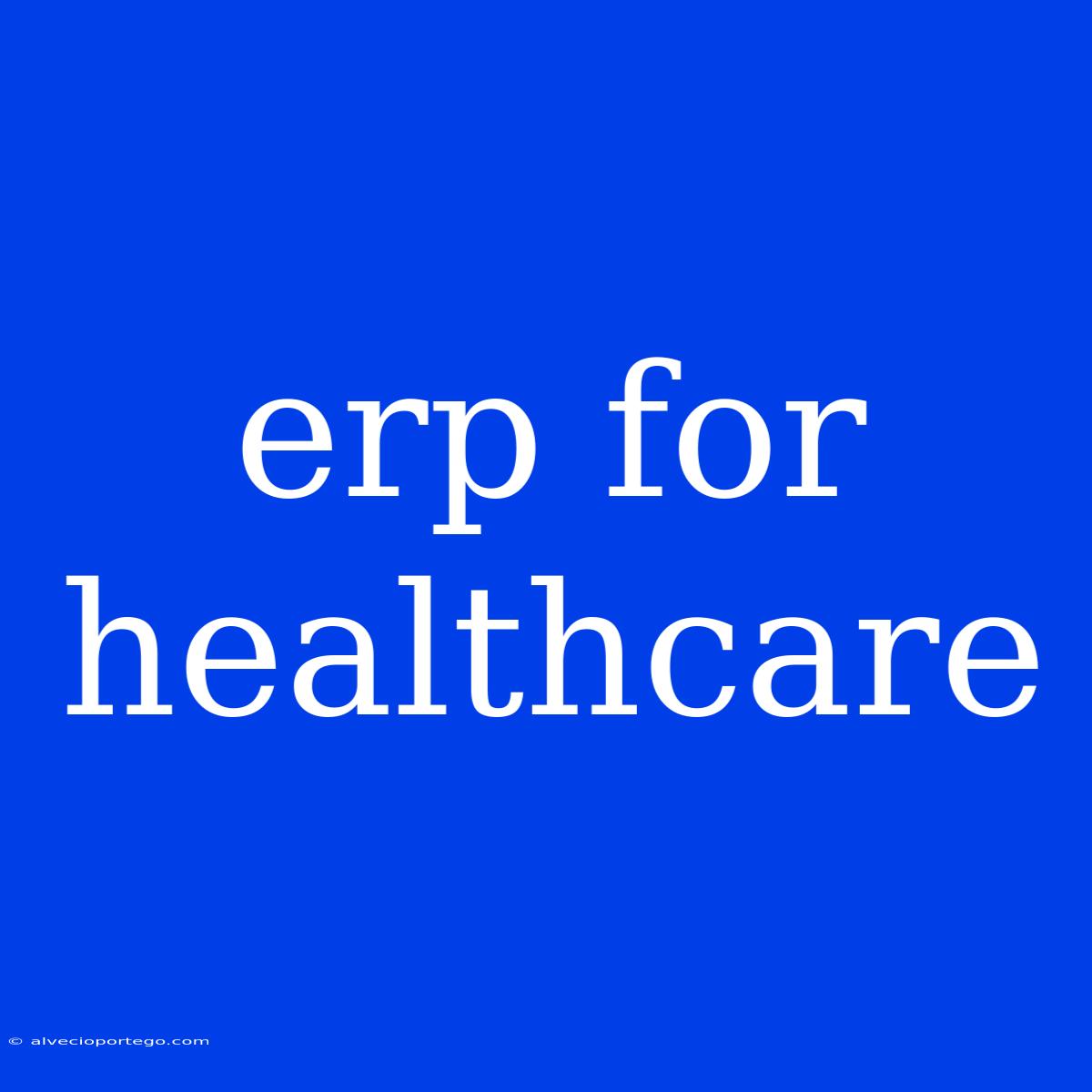ERP for Healthcare: Streamlining Operations and Enhancing Patient Care
Enterprise Resource Planning (ERP) systems have become increasingly popular in various industries, and healthcare is no exception. Healthcare ERP systems are designed to integrate and automate crucial business processes, providing a comprehensive platform for managing patient records, financial operations, human resources, and more.
Benefits of Implementing ERP in Healthcare
1. Enhanced Patient Care:
- Centralized Patient Records: ERP consolidates patient information, eliminating the need for fragmented data and ensuring all medical professionals have access to a complete picture of each patient's history.
- Improved Communication: Streamlined communication channels within the healthcare organization foster better collaboration between doctors, nurses, and administrative staff.
- Real-time Monitoring: ERP systems allow for real-time monitoring of patient vitals and treatment progress, enabling early detection of potential issues and prompt intervention.
2. Streamlined Operations:
- Efficient Inventory Management: ERP helps hospitals optimize inventory levels of medical supplies and equipment, reducing waste and ensuring timely availability of critical resources.
- Automated Billing and Claims: Automated billing and claims processing significantly improves efficiency and reduces administrative burden, allowing staff to focus on patient care.
- Simplified Scheduling: ERP streamlines appointment scheduling, ensuring efficient allocation of resources and minimizing wait times for patients.
3. Improved Financial Management:
- Accurate Financial Reporting: ERP provides real-time financial data, enabling healthcare organizations to make informed decisions regarding budgeting, cost control, and resource allocation.
- Enhanced Revenue Cycle Management: ERP automates billing and collections, speeding up payment processes and reducing bad debt.
- Compliance with Regulations: ERP systems help healthcare providers comply with ever-changing regulations, such as HIPAA, by ensuring data security and maintaining accurate records.
Key Features of Healthcare ERP Systems
- Patient Relationship Management (PRM): Provides a holistic view of patient interactions, including appointments, medical history, and billing information.
- Electronic Health Records (EHR): A digital version of patient charts, enabling secure access and sharing of medical information.
- Financial Management: Includes modules for accounting, billing, payroll, and financial reporting.
- Supply Chain Management: Manages inventory levels, procurement, and distribution of medical supplies and equipment.
- Human Resources Management: Handles employee information, payroll, benefits, and talent acquisition.
Choosing the Right ERP Solution
Selecting the right ERP system for your healthcare organization is crucial. Factors to consider include:
- Size and Complexity of the Organization: Smaller clinics may require a simpler system compared to large hospitals.
- Specific Needs and Goals: Determine the specific functions and modules required to address your organization's unique challenges.
- Budget and Integration Capabilities: Consider the cost of implementation and ongoing maintenance, as well as the system's compatibility with existing IT infrastructure.
Conclusion:
Healthcare ERP systems offer significant benefits for improving patient care, streamlining operations, and enhancing financial management. By embracing these technologies, healthcare organizations can improve efficiency, reduce costs, and ultimately deliver better patient outcomes.

